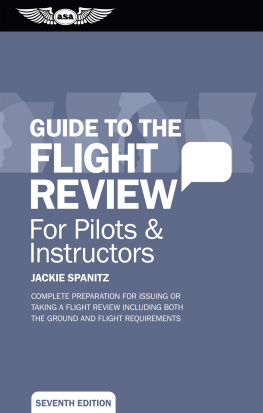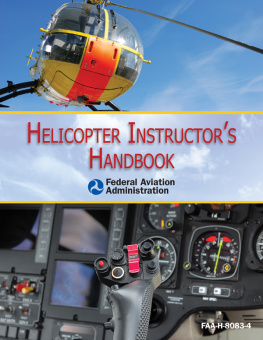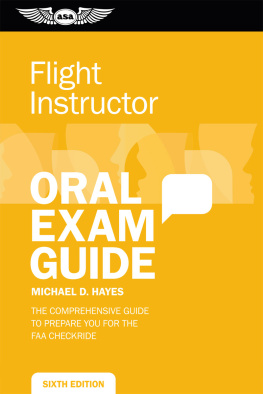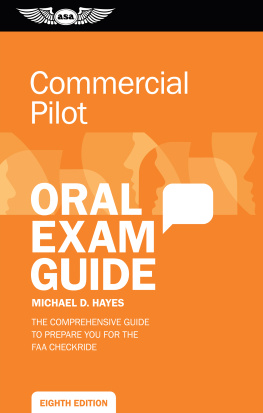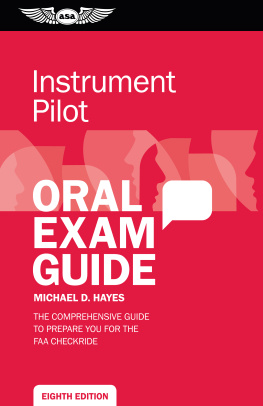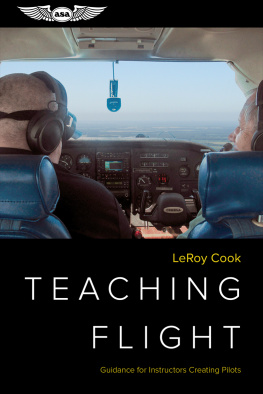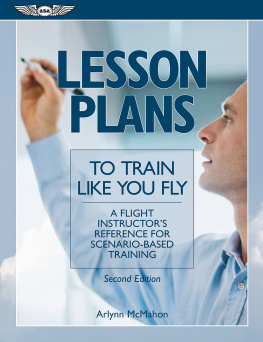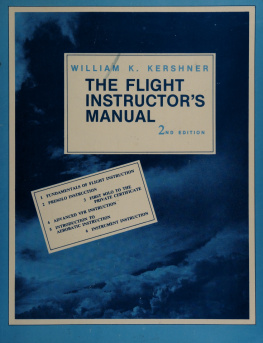McMahon Arlynn - The Flight Instructors Survival Guide
Here you can read online McMahon Arlynn - The Flight Instructors Survival Guide full text of the book (entire story) in english for free. Download pdf and epub, get meaning, cover and reviews about this ebook. publisher: Aviation Supplies & Academics, Inc., genre: Science fiction. Description of the work, (preface) as well as reviews are available. Best literature library LitArk.com created for fans of good reading and offers a wide selection of genres:
Romance novel
Science fiction
Adventure
Detective
Science
History
Home and family
Prose
Art
Politics
Computer
Non-fiction
Religion
Business
Children
Humor
Choose a favorite category and find really read worthwhile books. Enjoy immersion in the world of imagination, feel the emotions of the characters or learn something new for yourself, make an fascinating discovery.

- Book:The Flight Instructors Survival Guide
- Author:
- Publisher:Aviation Supplies & Academics, Inc.
- Genre:
- Rating:5 / 5
- Favourites:Add to favourites
- Your mark:
- 100
- 1
- 2
- 3
- 4
- 5
The Flight Instructors Survival Guide: summary, description and annotation
We offer to read an annotation, description, summary or preface (depends on what the author of the book "The Flight Instructors Survival Guide" wrote himself). If you haven't found the necessary information about the book — write in the comments, we will try to find it.
The Flight Instructors Survival Guide — read online for free the complete book (whole text) full work
Below is the text of the book, divided by pages. System saving the place of the last page read, allows you to conveniently read the book "The Flight Instructors Survival Guide" online for free, without having to search again every time where you left off. Put a bookmark, and you can go to the page where you finished reading at any time.
Font size:
Interval:
Bookmark:
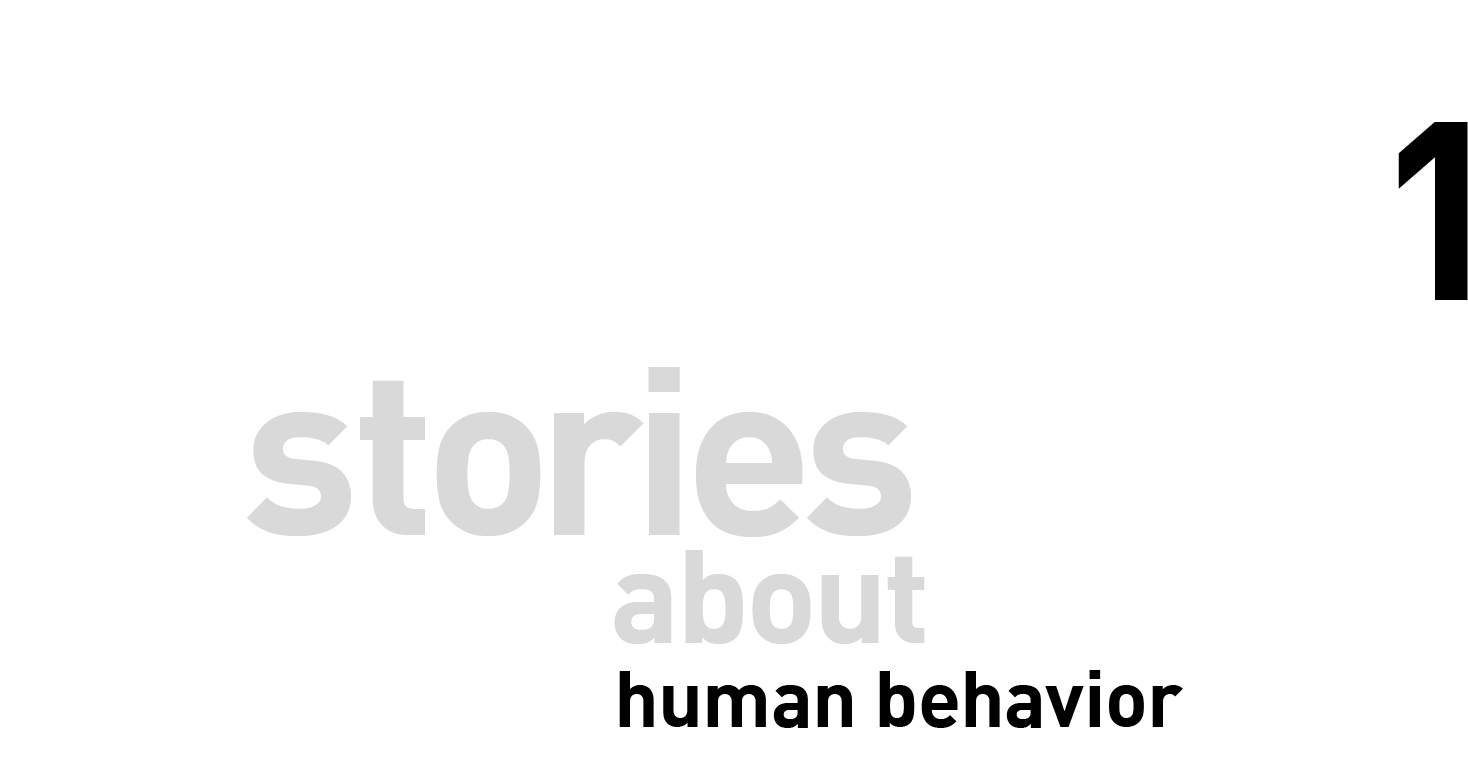
Maslow doesnt get enough credit.
If trouble is brewing with a student, look first to Maslow to fix it. Maslow is with us every daypeople have to eat several times and its just as important to have other needs met numerous times each day. Chances are good that the students problem is rooted in basic needs.
Lets assume youve just finished the flight portion of a lesson and now youre headed back to the classroom. Instead of rushing the student through the debrief, try something different. Say something like, Take a quick break, get a drink and Ill meet you in the classroom when youre ready. After the client has returned, inquire, Were there any aircraft discrepancies that we should write up? And, if you should pass another student on the way to document the discrepancies, introduce everyone. Can you see how were meeting basic needs?
Only after the students first three levels of basic needs are met is he fully prepared to learn. But, dont stop there. Find opportunities to reassure him that you believe he has the right stuff. Give him a few small windmills to conquer and remind him that something very worthwhile is just over his horizon. Now youve pulled him up a little higher on his pyramid.
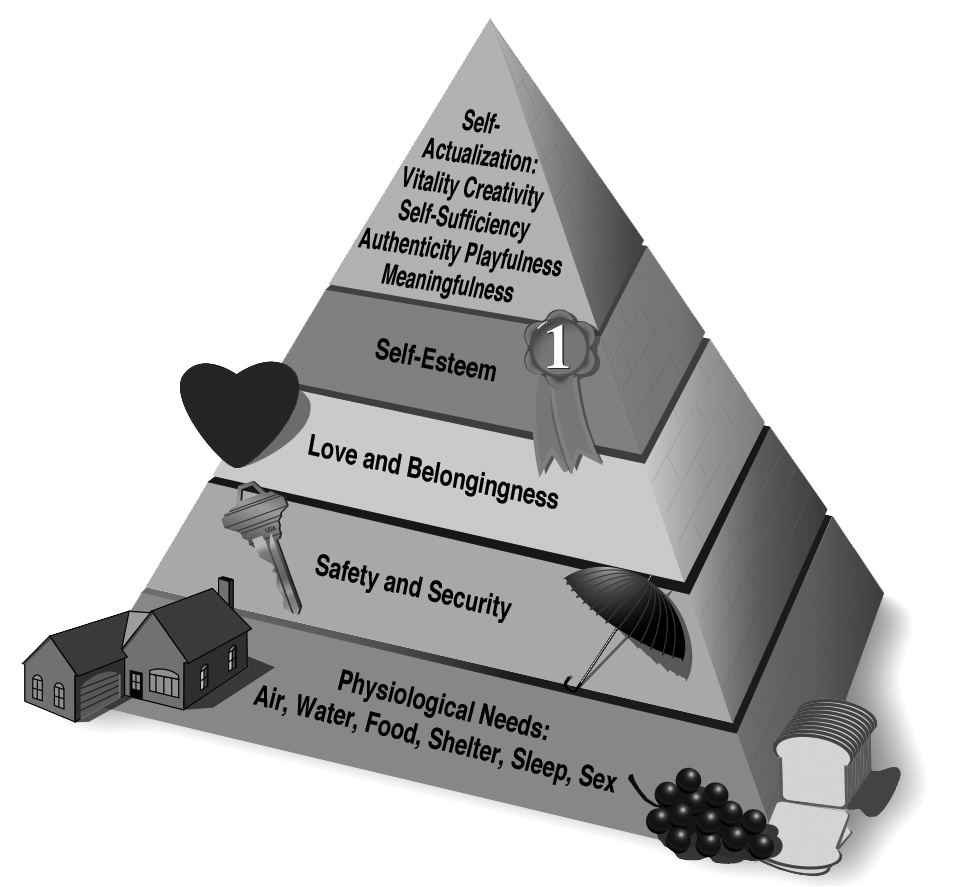
Figure 1-1. Maslows Hierarchy of Needs. (FAA)
In this chapter, youll meet a few clients whose basic needs were obvious, a few that were not, and some whose needs I failed to meet.
Walter
At 40-something, he still possessed the chiseled body of an athlete who played hard. Everything about Walters life was big. He had a prosperous private medical practice, a big beautiful family, and a big house, and he was already talking about buying a big hanger for his first plane.
During our flight training, Walter completed every assignment effortlessly. I could have soloed him in eight hourshe was that good. Still, I waited until hour twelve, just because. He scored 100 percent on his Private Pilot Knowledge Exam and in that way, he was a challenging student.
It bothered me that I had never seen Walter make a mistake. He never bounced a landing. He never needed a go-around, never got lost or tongue-tied while speaking to ATC. He was always sure of himself. I never had the opportunity to see him correct a mistake or handle a bad situation and it bothered me that I didnt have a clue about how he might react.
Then it happened.
It was the last leg of our dual cross-country. Everything was perfect. The VOR needle was straight up. Every ETA was recorded and each checkpoint accounted for. He had even pre-set the KLEX ATIS into the standby frequency on the #1 COM, just waiting for the miles to click away. I asked what should have been a simple question: How many miles is it from our current position to Lexington?
He confidently snapped the plastic plotter down on the sectional in his lap and pronounced, 102 miles. Hummmthats not right, I thought to myself. And, so, there it wasthe first and only Walter-mistake. It was the tiny mistake of reading a WAC scale against a sectional chart. Everyones done it.
I wanted him to work through it. I wanted him to find his own mistake without me pointing at it. Alternately, I wanted him to consider suitable options based on his perceived information. That doesnt sound right, I inquired, how many miles is this entire leg? After he incorrectly read the WAC mileage for the second time, I asked if that was the number that he recorded on the NavLog during our planning.
No, its not! Deep furrows formed into his forehead, marking his confusion. I could almost hear his blood pressure rising. Sixty miles are missing from my planning computations.
My goal was to get him thinking out ahead of our current position; I wanted his thinking to project ahead of the plane. Well, how will the additional mileage affect our fuel supply in reaching Lexington?
He expertly whizzed the manual E6B through a few rotations before the realization hit, We dont have enough fuel! We cant make Lexington! His eyes were large. He was horrified.
I pressed further, OK, what are we going to do about it?
What are we going to do about it? His voice increased in volume with the overemphasis on we. We arent going to do anything. You fix this, and with that, he defiantly removed his hand from the C152s controls and folded his arms across his chest. The plane, without autopilot, flew on trim and stability alone.
You do realize, his tone now matter-of-fact, this is all your fault. Yeah, youre the instructor. You looked over my planning. You were supposed to be checking my work. You should have caught this. I did a hundred calculations. I cant be expected to get every one perfect.
While I was considering how to respond, he continued, This is not my fault. You kept pushing me update the weather, preflight the plane, come on, we gotta get out of here, his voice mocking mine. You are the worst instructor ever. I dont know why I chose you. You should have fixed this before we even got in this plane.
My head was reeling; I was confused. Then suddenly he began thinking aheadfar, far ahead.
Oh no! If I die today, my wife will have to raise five little boys all by herself. Oh geez, I dont have enough life insurance. Shell lose the house. Oh my God! The boys college fundI havent even set that up yet. He was becoming hysterical.
I was shell-shocked. Maybe thats why it took longer than it should have to recognize his defense mechanisms. I remembered reading about them during flight instructor training. I just saw resignation when he crossed his arms. I recognized compensation, rationalization, projection, displacement and denial. OK, once I understood what was happening, it was time to get to work.
Walter, please fly the plane.
No!
We need to make a plan, lets work together. Ill fly. You have the chart; you navigate. Is there an airport nearby that we can divert to?
Without modern avionics, he had only the sectional to assess our surroundings. Yes, we should be able to make Danville, his voice now hopeful. He got to work plotting a heading and took the flight controls.
Once it appeared that we were safe, he calmed down some but he wasnt finished chastising me. He was patronizing through the entire 25 very long miles to Danville. My young 20-something years of age made me open to his fatherly-type reprimanding of my teaching technique. I didnt utter a word. He suggested several improvements to my supervision abilities. He offered 101 ways to improve the way I looked, the way I talked and even the way I wrote in his logbook. Nothing about me escaped his ridicule. I sat quietly and continued to watch the sky for traffic.
We must have had a horrific headwind for the eternity that passed while en route to Danville. By the time he was preparing for descent to traffic pattern altitude, I had had more than enough. Ooo-kay, fly heading 030. Take me to Lexington. I added a pointing palm toward my new destination to emphasize the direction.
His face was perplexed. A suddenly confident, commanding voice suggested I knew something he didnt. You made a mistake, I tried to sound unthreatening and reassuring, We are fine. We have plenty of fuel to make Lexington. Just please, take me home. Surprisingly, he was quick to become calm and compliant.
The remainder of the flight was without a word. He managed every task perfectly including a flawless landing. Returned to the ramp, he retarded the mixture and exited the plane. He didnt tie her down. He didnt collect his flight bag. He hustled through the flight school office without saying goodbye to anyone. The wheels on the big Mercedes squealed as he departed the parking lot.
Next pageFont size:
Interval:
Bookmark:
Similar books «The Flight Instructors Survival Guide»
Look at similar books to The Flight Instructors Survival Guide. We have selected literature similar in name and meaning in the hope of providing readers with more options to find new, interesting, not yet read works.
Discussion, reviews of the book The Flight Instructors Survival Guide and just readers' own opinions. Leave your comments, write what you think about the work, its meaning or the main characters. Specify what exactly you liked and what you didn't like, and why you think so.

